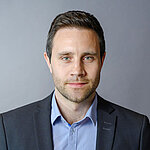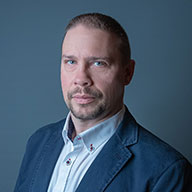
Positioning accuracy in machine development
Simulation of machines and systems in motion using Ansys Mechanical
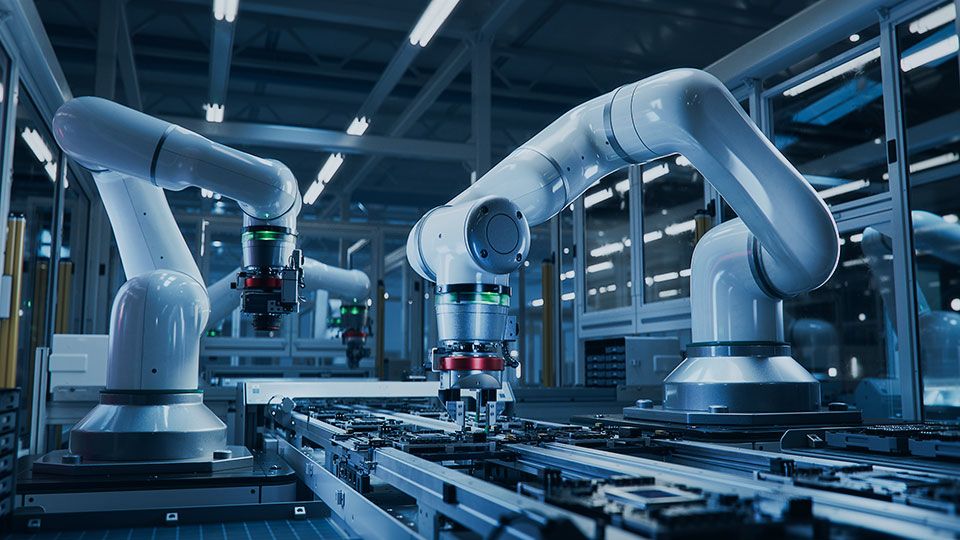
In this training, you will learn how to increase the accuracy of machines by simulating static, dynamic, and thermal environmental influences as early as the development stage. This training is offered as a 2-day course.
Duration
2 days
Prerequisites
Basic knowledge of Ansys Mechanical
Software used
Ansys Mechanical
- Answer practically relevant questions about the machine tool development with FEM
- Achieve better workpiece quality and higher productivity
- Targeted practice of relevant analysis types in workshops
- Examine influence parameters on the Tool Center Point (TCP)
Description
Many leading machinery manufacturers use modern development tools and methods to develop better machines more quickly. As a central component of that effort, the use of FEM software has become an inextricable part of the virtual product development process for machine tools. It enables comprehensive static, dynamic, and thermal analyses of digital prototypes and thereby efficiently answers many questions without the costly and time-consuming construction of real prototypes.
This training provides developers and designers with the necessary knowledge for the numerical simulation of machine tools. You will learn how to use FEM analyses to answer many practical development questions concerning machines and systems in motion in such a way that the machine becomes more productive and cost-effective, and a better product quality is achieved. In various workshops, we develop the targeted handling of different types of analysis.
The course is beneficial to anyone looking to make predictive statements on possible design variants at an early concept phase or those who want to use analysis technology to specifically address troubleshooting in the event a problem arises during operation.
Detailed agenda for this 2-day training
Day 1
01 Machine oriented FE modeling
- Model preparation (geometry, contacts, material, meshing)
- Workshop: defining connecting elements (linear guides)
- Workshop: defining a ball screw
02 Effect of moving loads on the straightness of the TCP
- How does the TCP (tool center point) shift relative to the WPP (workpiece point) due to the influence of gravity when the tower moves?
- Workshop: defining joints to automate the tower movement relative to the machine bed and evaluating the relative displacement
03 Static stiffness in the uncontrolled state
- Creating the relevance matrix for the unregulated state
- How great is an axis’ influence on the TCP’s compliance?
- Do the axes influence one another?
- Workshop: creating and evaluating the relevance matrix
- Which machine components have the largest deformation components?
- Workshop: evaluating the deformation components at component level
04 Static stiffness in the controlled state
- Investigating the behavior for the controlled state
- Workshop: how does an ideally stiff controller behave and how does this affect the TCP’s displacement?
- Position control via direct or indirect position measuring systems
- Mounting location for the direct position measuring system
- Workshop: how does the direct position measuring system’s mounting location affect the static rigidity?
Day 2
05 Dynamic accuracy of the feed axes I
- Determining critical frequencies and eigenmodes by modal analysis
- Workshop: determining eigenfrequencies and eigenmodes
- Workshop: displacement of eigenfrequencies due to design changes
06 Dynamic accuracy of the feed axes II
- Calculating the TCP compliance using the frequency
- Workshop: transfer function between the drive and measuring system as well as the drive and TCP
07 Accuracy-relevant, stationary thermal growth
- Temperature field analysis with realistic boundary conditions
- Coupling between thermal and mechanical analysis
- Workshop: determining the thermally induced displacement of the TCP
08 Advanced analyses
- Topology optimization: What does an ideal material distribution look like?
- System simulation: integrating different components at system level
- Rattling: creating stability maps
Your Trainers
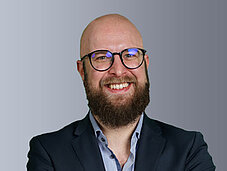
Simon Petermaier
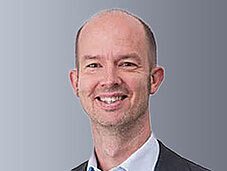
Ulf Friederichs
Placement in the CADFEM Learning Pathway
Participant data
Additional information
Commentary
Whether eLearning, classroom courses, live online training or customized workshops - together we identify the best option for you.
Do you have questions on the training?
If you book through your university, you will receive a 50% discount on the stated fee on training courses and eLearning courses.
For more information on the validity and how booking with the code ACADEMIC50 works, please visit our page on training for academic users.
Straight after you sign up, an automatic confirmation of receipt will be sent to the email addresses you provided. Once you have successfully verified the data you provided, you will receive your personalized sign-up confirmation, containing further information on course fees, the billing address, etc., by email within two to three working days.
As soon as the minimum number of attendees has been reached, you will receive a final training confirmation containing further information. If you have booked an on-site training, we recommend that you wait until you have received this final confirmation before booking your travel and accommodation.
If the minimum number of attendees is not reached, we reserve the right to cancel the training seven days before it is due to start at the latest. We are happy to inform you on changing your booking to an alternative date. Please note that we accept no liability for hotel or travel bookings that attendees have already made.
Usually the training courses start at 9:00 am and end at 5:00 pm of the respective local time. The actual course times will be stated in the booking confirmation. Please note that, depending on the training host, there may be a possible time shift between your and the provider's local time. Therefore all local times are provided with the valid time shift to Greenwich Mean Time (GMT).
